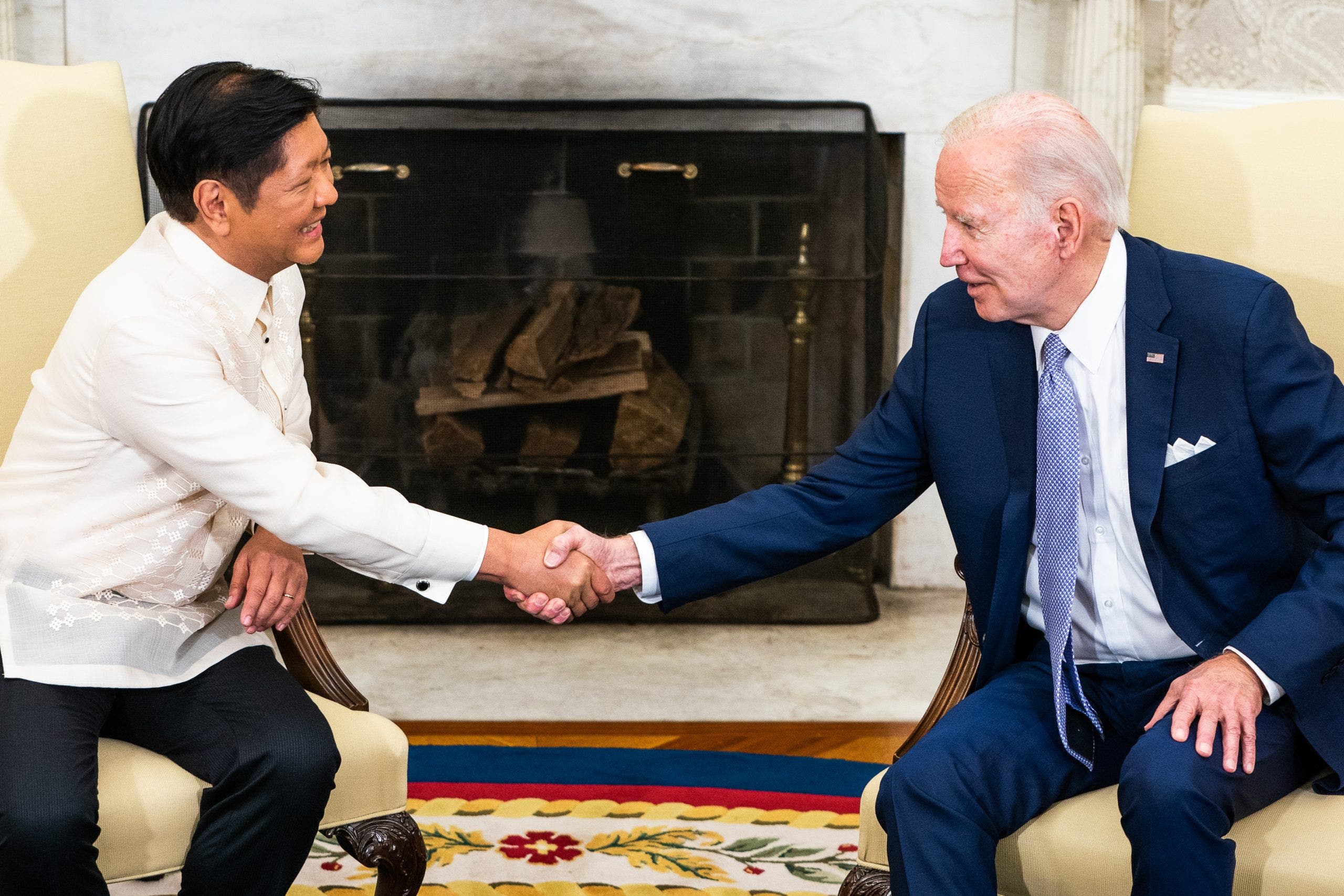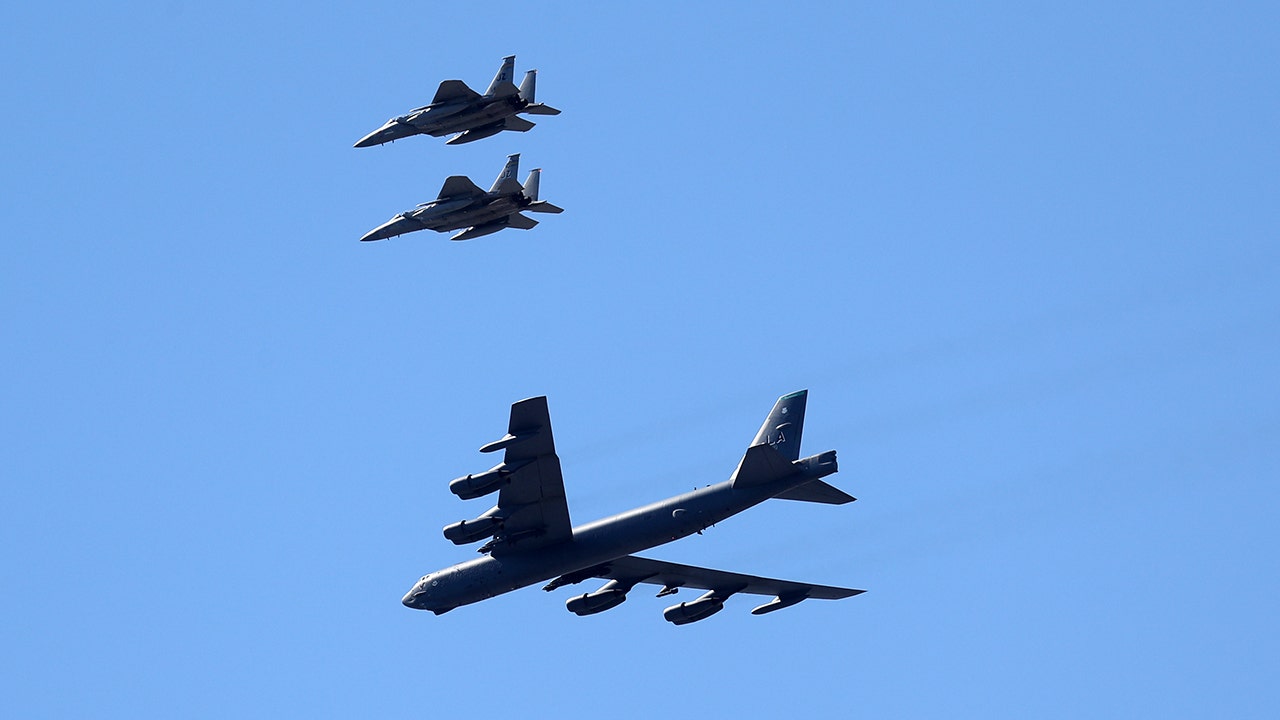President Biden will meet this week with his Philippine counterpart as the nation continues to face increasing tension over territorial disputes with China, with plans to discuss joint patrols of the region.
“Joint patrols are something that we’ve already discussed extensively with Japan and the United States,” Philippines Ambassador to the U.S. Jose Manuel Romualdez told reporters in a briefing last week. “And I think that we’re hoping that this will come into fruition very soon.”
First reported by MEMRI’s China Media Studies Project, China put a spotlight on its feud with the Philippines last week when the state-owned outlet China Daily published an opinion piece that claimed World War III could break out over disputes with the South East Asian nation.
“Only a handful of leaders in the Philippines, ignoring the increasing challenges, such as rising prices, at home, are stirring up the extreme sentiments of the people by feeding them anti-China rhetoric,” naval historian Yang Xiao wrote. “What they don’t realize is that once the “Sarajevo gunshot” is fired in Asia, the innocent people in East and Southeast Asian countries will become the biggest victims of war.”
The U.S. has regularly looked to shore up security in the Philippines, with whom the U.S. shares a mutual defense agreement, signed in 1951, requiring either nation to defend the other in the case of an attack.
US President Joe Biden and President of the Republic of the Philippines Ferdinand R. Marcos Jr. during a meting in the Oval Office of the White House on Monday, May 1, 2023. (Demetrius Freeman/Washington Post via Getty Images)
To honor this commitment, the U.S. has annually staged naval drills near and with the Philippines — the latest of which happened earlier this week in combination with Japan and Australia, as a show of force and strong interoperability between the allies in the face of China’s territorial ambitions.
The security meeting this week, which is the first-ever Washington summit between the U.S., Philippines and Japan, will look at trilateral efforts to further shore up stability in the region with further joint efforts, including potential patrols by all three nations throughout the disputed shoals and waterways.
TOP CHINESE OFFICIAL TO LEAD ‘GOODWILL VISIT’ TO NORTH KOREA THIS WEEK
China has most recently hassled the Philippines over disputed fishing shoals, with Chinese coast guards trying to chase Filipino fishermen away and leading to tense standoffs between the two.
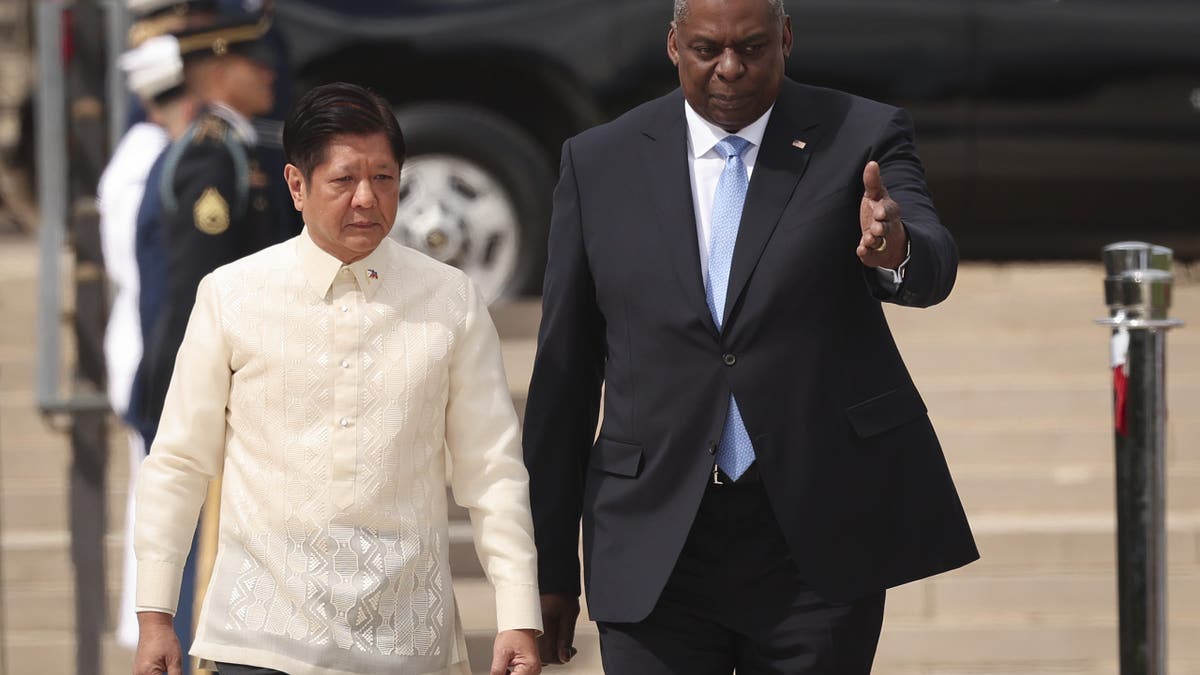
Philippines President Ferdinand Romualdez Marcos Jr. (L), is escorted by U.S. Secretary of Defense Lloyd Austin (R) during an arrival ceremony at the Pentagon May 3, 2023 in Arlington, Virginia. Marcos, who met with U.S. President Joe Biden yesterday, has bilateral meetings today with members of the Biden administration. (Win McNamee/Getty Images)
Last year saw a series of near-clashes between the two coast guards near the Second Thomas Shoal. The Philippine authorities protested China’s use of a water cannon and military-grade lasers.
China established a claim to the Scarborough Shoal in 2012, after which the Philippines formally launched a protest that went before a United Nations-backed tribunal. A 2016 ruling went against China, rejecting Beijing’s claims on “historical grounds,” but Beijing rejected the arbitration and its outcome.
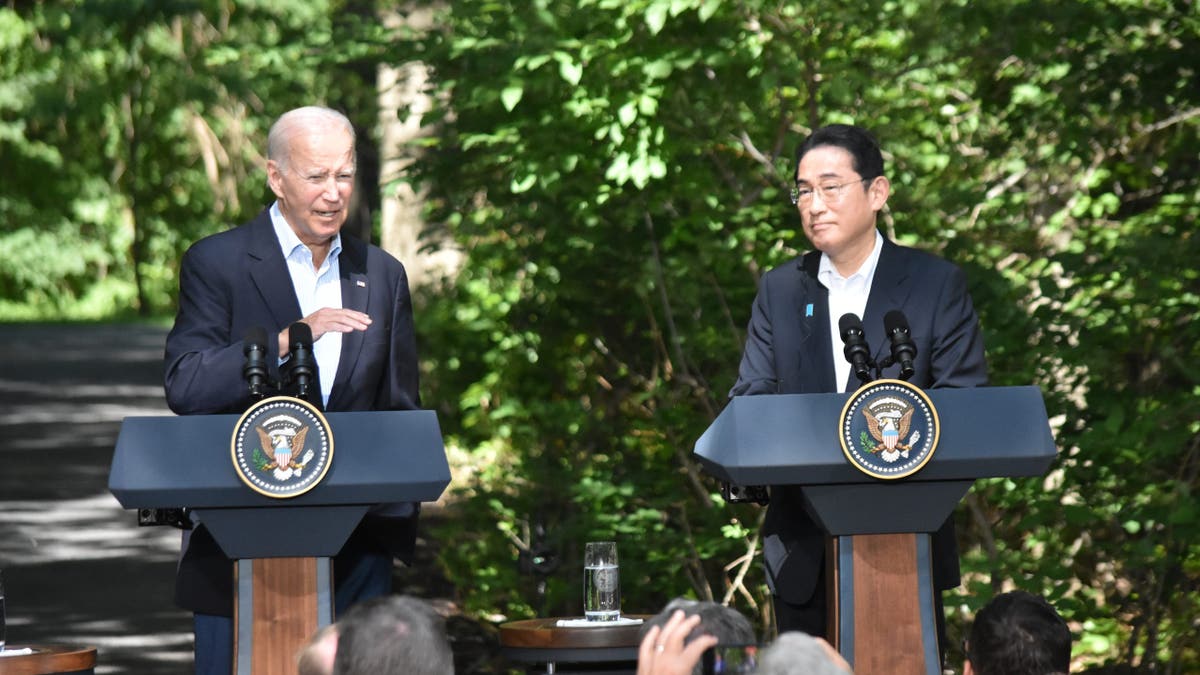
President of the United States Joe Biden (L) holds a trilateral news conference with President of South Korea Yoon Suk Yeol (not seen) and Prime Minister of Japan Fumio Kishida (R) at Camp David, President Biden’s retreat in Catoctin Mountain Park, Maryland, United States on August 18, 2023. (Kyle Mazza/Anadolu Agency via Getty Images)
In response to speculation and reports of joint patrols around the Philippines, National Security Spokesperson John Kirby told Voice of America (VOA) that President Biden has addressed the issue of South China Sea tensions with Chinese President Xi Jinping during a phone call.
TAIWAN WAR GAMES TO SIMULATE CHINA TURNING A MILITARY DRILL INTO AN ATTACK: REPORT
Pentagon press secretary Pat Ryder also declined to confirm the reports, telling VOA that the trilateral meeting this week aims to “ensure that the Indo-Pacific region remains free, it remains open and that there is security and stability throughout the region.”
Japanese Prime Minister Fumio Kishida said ahead of the trilateral summit that “while we maintain the Japan-U.S. alliance as a cornerstone, we believe it is important to cooperate with like-minded countries, including the Philippines.”
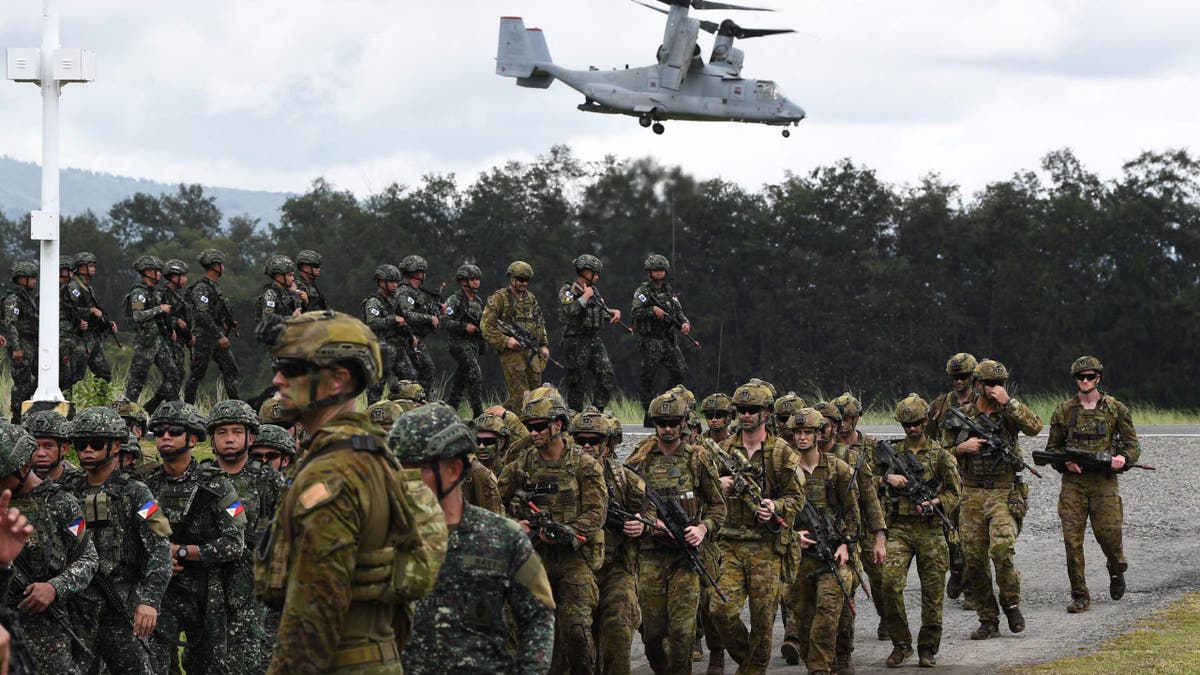
Philippine and Australian soldiers march in formation while a US marines V-22 Osprey hovers above during military exercise Alon (wave), a joint amphibious landing drill held at a naval base in San Antonio town in Zambales province, north of Manila on August 25, 2023. (Ted Aljibe/AFP via Getty Images)
The Associated Press reported that Kishida will seek “counterstrike” capabilities from the U.S. and recently purchased 400 U.S. Tomahawk long-range cruise missiles after relaxing export guidelines in recent months to start increasing sales of weapons.
Japan has sold coastal radars to the Philippines and is now working on a defense agreement that would allow each nation’s troops to visit each other for joint military exercises.
CLICK HERE TO GET THE FOX NEWS APP
“Cooperation among our three countries are extremely important in maintaining peace and stability in the Indo-Pacific and in defending a free and open international order based on the rules of law,” Kishida said Monday before leaving for Washington.
The Associated Press contributed to this report.


